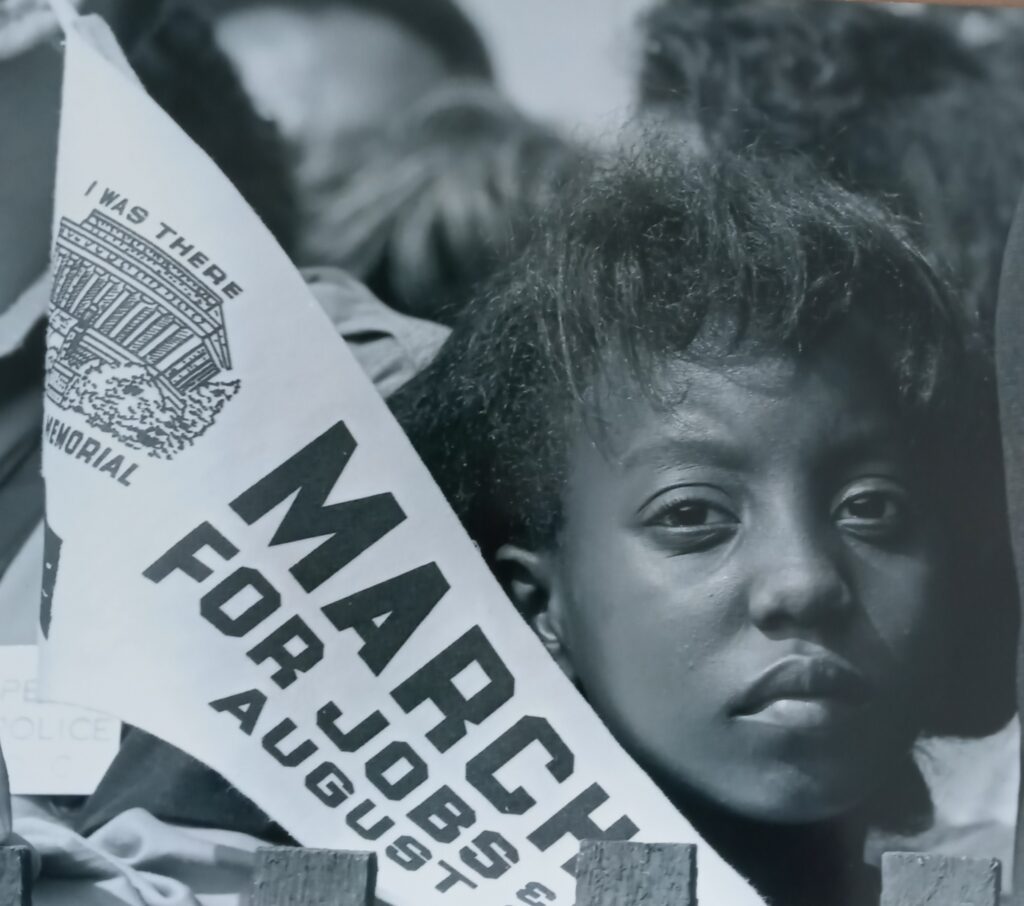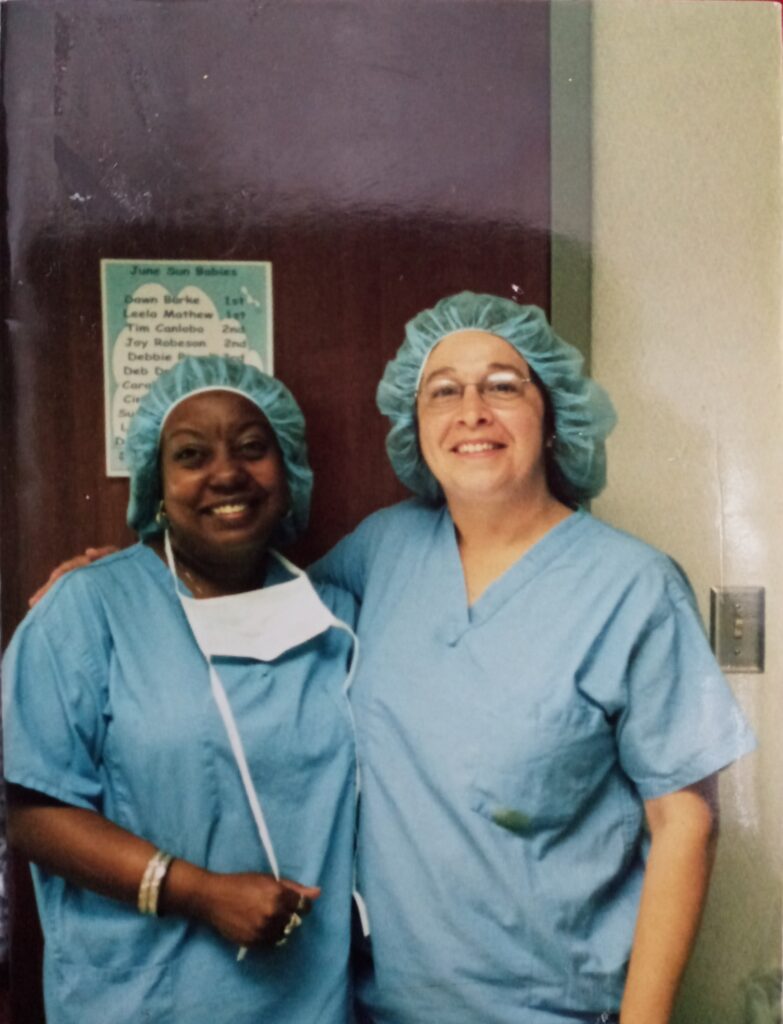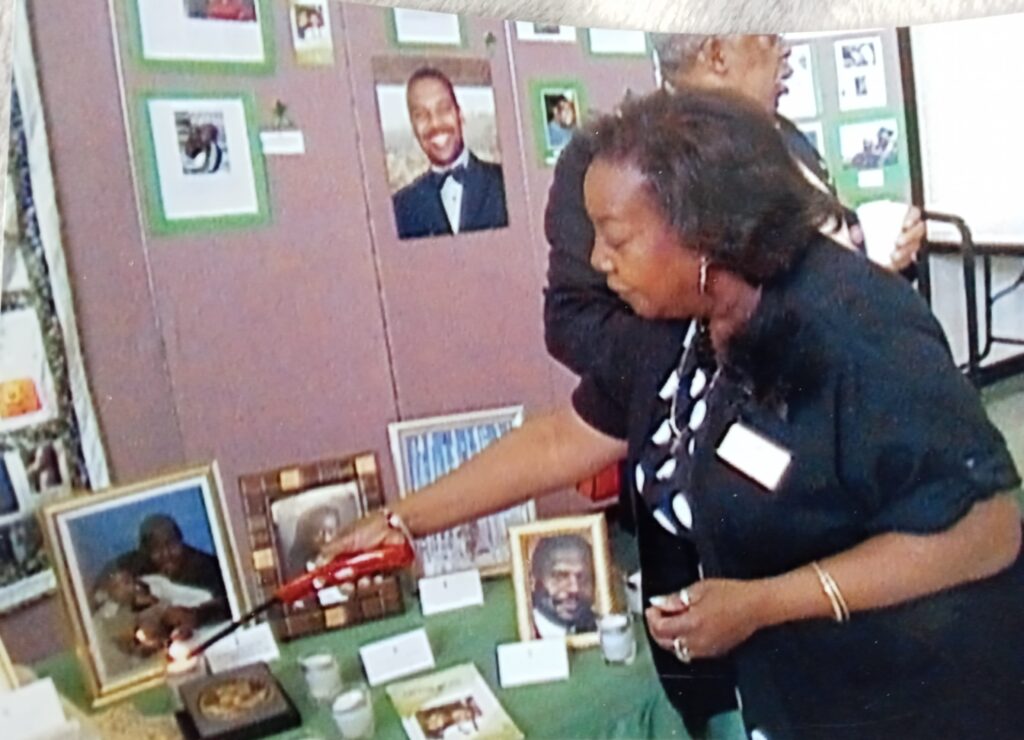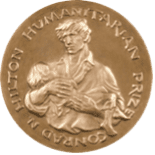Edith Lee-Payne has been an activist for over four decades. Her 12th birthday coincided with the 1963 March on Washington led by Reverend Dr. Martin Luther King Jr., and it cemented her place in history. A photo taken of her at the March has made its way into history books and museums, but Lee-Payne has grown far beyond this iconic image. An activist for quality education, equal housing, public safety, and voting rights, Edith Lee-Payne also advocates as a donor mom for organ and tissue donation in communities where donations are most needed. Read our interview with Lee-Payne below.
In honoring your contributions to advancing education, we also noted your work with equal housing, public safety, voting rights, and organ and tissue donation. It’s clear that you have a passion for social change. So, what drew you to all these areas of work?
Well, as it relates to the housing and voting rights … I was inspired by my mother and attending the March [the 1963 March on Washington] with Reverend Dr. Martin Luther King Jr.
I lived in Detroit and the North where, while there was some discrimination, it wasn’t around me. And it paled in comparison to the injustices that people were experiencing in the South … It’s more of something that was in me as I think it is with most people that get involved, it’s something that they want to do as a passion. You know, they want to see change … they want to be a part of that. And it’s just kind of done without thinking, you just get into it.
That’s what started it, it was confirmed for me that that was my destiny, if you will. When I learned of a photograph that was taken me at the March on Washington on August 28 [1963], which happened to be my 12th birthday. And so, that was my confirmation: to see my 12-year-old face on a … it started off on a Black History Calendar with Sojourner Truth and Dr. King and many others and I was just wowed and in disbelief initially.

But it continued to inspire me and then as others learn about it, it gives me that opportunity to help people understand better what the Civil Rights Movement was all about. Especially the March on Washington, it wasn’t just about a speech, it was about a movement and change that needed to occur for a gambit of people: men, women, jobs, housing opportunities, and of course equal rights.

My other passion is organ and tissue donation. My eldest son Antoine was killed when he was 20 years old. And although we never talked about organ and tissue donation, out of my love for him, I saw it as a way to keep part of him here. When they approached me about organ donation, I agreed. And that gave me comfort, especially after I had the opportunity to meet his heart recipient and see what we hear about these things … but when it affects you, it becomes totally different. To see him but not only to have the opportunity to feel my son’s heart beating you know and to what someone living with it made all the difference in the world to me.
It’s incredible how we don’t often hear about the importance of organ and tissue donation. It’s something that is never really uplifted and it’s amazing to see the work that you’re doing and the advocacy that you do…it sounds like you had a really good foundation for social change from the time that you were very young. What, after all this time, has kept you passionate about this work?
Well, things continue to happen. We haven’t reached the effective change that we would like to see … we’re still experiencing voting rights issues. And, you know, it shouldn’t be like that … we live in a democracy, we should have a right to vote, and those things should not be changed – if anything they should be improved and made better.
I was at the TCF Center as a supervisor in Detroit, so I was inside the room and people were beating on the door trying to get us to stop the count [in 2020]. And of course, we did not because we couldn’t, and the training we went through was extensive and it was just kind of unbelievable, ironically, though. The next general election that we had, which was residential, there was no one knocking on the door, there was no media, there was no one there. So, it wasn’t an issue really about what we were doing. It was another issue that was more political in nature, but we all have that right to vote and it should be exercised, it should be broadened and extended and made as convenient as possible, because it’s not limited to a certain party. It’s for anybody, whatever your party affiliation is and I’m kind of disappointed that it’s not viewed that way.
But that’s also part of the equality that we should be looking at because certain things should not define us. For example, the color of our skin should not define who we are, our facial features, our gender. We’re all basically the same if you start at the core of who we are …
What keeps you going when you encounter roadblocks or frustration?
Just the need to make it happen, then the desire to make it better. I grew up believing that I could do anything I wanted to do. There were no racial barriers placed on me by my mom ever. She never needed to remind me what my race was because it was kind of obvious … I could do whatever I wanted to do if I put my mind to it, so there were no restrictions …
The conversation now is more about how there’s a need for police reform, for example. We have to have conversations about what to do and what not to do. When you’re out on the street driving, whether it’s my grandsons or my granddaughters or our sons. But, because of that, it’s still important in my opinion to emphasize to them that they do not allow those differences as people view them to define themselves. You still see yourself as who you are and what you want to be. And that’s how you want people to see you. So that’s how you should act and act accordingly. Because now I’m also a great-grandmother … I want to do everything that I can to make the quality of life better for them. And of course, anybody else as better as I possibly can, as the shoulders of people that I stand on. To do that, so it’s paving the way forward. And it’s just necessary so that’s what drives me: it’s necessary and it’s an ongoing thing every day.
I know mentioned your granddaughter, your mother and some others but are there any people specifically that you feel have really helped you on this journey?
I’ve worked alongside a number of people and organizations as it relates to education police reform … Of course, people. I’m inspired by anyone … people in the legislature that aren’t afraid to stand up and do the right thing and do things on behalf of not just their constituency, but their country. I’m very proud of the president we have now someone that I have followed for a very long time. And I like what he’s doing. I like his leadership, I respect that.
Like I said, it’s just a number of people that that inspire me, but I still hold on to my mom, and what just watching her every day watching her. She was a domestic and went back to school and went into nursing, but her strength, her commitment, her dedication, her fortitude. And she never complained about anything … She took the bus. Nothing stopped her from doing anything which is kind of like how nothing can stop me, there’s always going to be a way, even when you have a wardrobe malfunction and can’t find an earring just before an interview breaks and you have to find another phone like you’re really able to pull inspiration from, you know, everyone you meet.
Do you have any advice for people who might want to follow in your footsteps?
I would advise anybody that wanted to, they may want to follow in my footsteps to be committed. To not be deterred no matter what happens, and to be fearless. I came up, one of the arguments that I make most often to people people when they want to be involved with civil rights, for example, or making the change. I share with them with the people in the civil rights movement … I want them to understand that there was an … There was an extreme amount of courage that those people had because every day, especially people in the south, every day when they went out, they knew that it could be their last day after King…he knew that there was a possibility that he may not come back home, and those that worked with him and traveled with him and you know that were side by side with him. But that’s an example of putting the needs of other people first. The things that he said that stands out the most to me … which I kind of alluded to earlier and that is recognizing who you are as a person and not allowing your complexion to define you.
So, when he said he wanted his four little children to be judged by the content of their character, and not the color of their skin, that kind of says there should be no barriers, be seen as who you are not the outward appearance. And when people see you for who you are and what you are all those other things don’t seem to matter.
… that was one thing that I learned about Dr. King and the people that he was involved with. He always gave people in his surroundings an opportunity to express their thoughts and concerns, and then they acted on it together.

“60 Over 60” honors 60 Americans over 60 who are making significant contributions to society at the local, national or international level. You can view the full list of honorees by clicking here.


